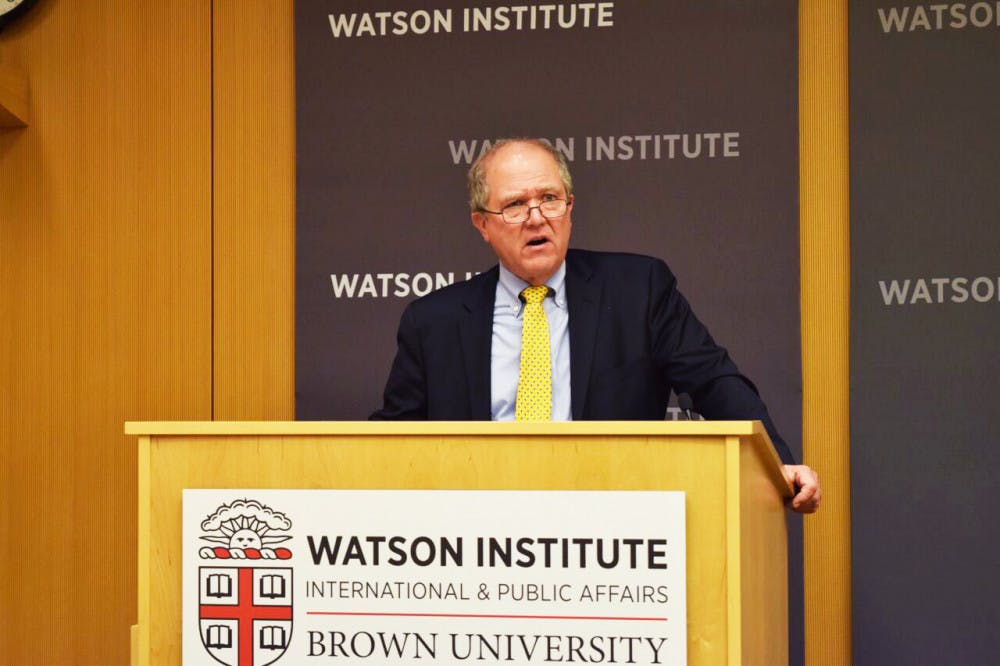“How do we successfully rebuild a failed state?” asked John Sopko, head of Special Inspector General of Afghanistan Reconstruction, during a talk entitled “U.S. Challenges in Afghanistan” Wednesday at the Watson Institute for International and Public Affairs.
“We are objective and independent in our work,” Sopko said of SIGAR, an agency that conducts audits and investigations and makes recommendations to prevent fraud, waste and abuse of U.S. taxpayer dollars toward the reconstruction in Afghanistan, according to the agency’s website.
Congress created SIGAR in 2008, and President Obama appointed Sopko as inspector general in 2012. Sopko has over 30 years of experience as a congressional counsel, prosecutor and senior federal government advisor, including 20 years on Capitol Hill, according to SIGAR’s website.
In his talk, Sopko outlined four main challenges that SIGAR faces.
The first challenge is “the inability to define requirements, measure effectiveness and assess sustainability,” Sopko said. “U.S. agencies measure inputs and outputs rather than outcomes,” he said, adding that “numbers don’t tell Congress about the effectiveness of programs.”
“We need to know which … programs are ones Afghans want” in order to make Afghanistan a “stable and prosperous place,” he said.
The second challenge is the “lack of coordination within our government, with the Afghans and with our partners in Europe and elsewhere,” Sopko said. “By not coordinating the various lines of efforts … we undermine our mission and waste U.S. taxpayer dollars.”
The third challenge is “poor planning, oversight and accountability,” he said, noting that nearly $13 million allocated for an Afghan electricity operator was never used.
Poor oversight could result in deaths, Sopko said, noting that improperly installed culvert denial systems, which help prevent improvised explosive device attacks, led to the death of American Marines in Afghanistan in 2013.
“Fraud kills,” he said. “Oversight is not just about saving money. It’s also about saving lives.”
The fourth challenge is corruption, which “can undermine every single endeavor we undertake in Afghanistan,” Sopko said. Corruption and international instability must be addressed “if Afghanistan is ever to prosper on its own,” he said.
Looking ahead, Americans must keep in mind which strategies and programs prove to be most effective in Afghanistan, since future reconstruction efforts in other countries such as Yemen and Syria are highly likely, Sopko said. “Afghanistan is a case study for anyone hoping to gain wisdom from the world of conflicted states,” he said.
Many Americans incorrectly “assume that our commitment to Afghanistan is waning” due to the retreating U.S. troops, Sopko told The Herald prior to delivering his talk. “We really need to be there — helping and supporting the Afghan people — because otherwise it will be a failed state again” and will pose a danger to the United States, he said.
Sopko told The Herald he hopes his talk highlighted the importance of public service to the students in attendance. “We need smart, intelligent, aggressive, active people … to join the government” and to “fix the problems we’re leaving (behind),” such as terrorism and reconstruction, he said.

ADVERTISEMENT




